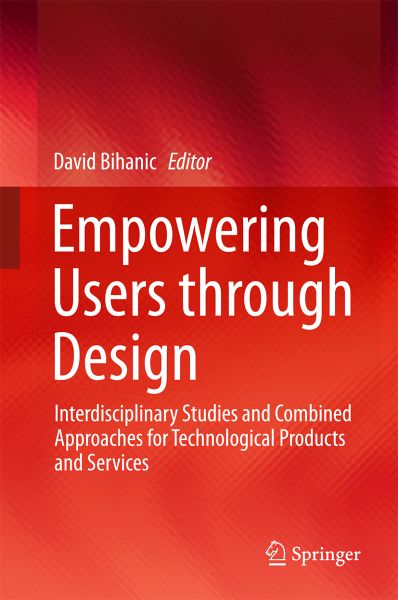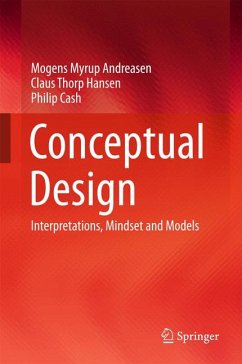
Empowering Users through Design (eBook, PDF)
Interdisciplinary Studies and Combined Approaches for Technological Products and Services
Redaktion: Bihanic, David
Versandkostenfrei!
Sofort per Download lieferbar
72,95 €
inkl. MwSt.
Weitere Ausgaben:

PAYBACK Punkte
36 °P sammeln!
At the crossroads of various disciplines, this collective work examines the possibility of a new end-user "engagement" in ongoing digital/technological products and services development. It provides an overview of recent research specifically focused on the user's democratic participation and empowerment. It also enables readers to better identify the main opportunities of participatory design, a concept which encourages the blurring of the role between user and designer. This allows people to escape their status as "end-user" and to elevate themselves to the level of creator.This book explore...
At the crossroads of various disciplines, this collective work examines the possibility of a new end-user "engagement" in ongoing digital/technological products and services development. It provides an overview of recent research specifically focused on the user's democratic participation and empowerment. It also enables readers to better identify the main opportunities of participatory design, a concept which encourages the blurring of the role between user and designer. This allows people to escape their status as "end-user" and to elevate themselves to the level of creator.
This book explores new avenues for rethinking the processes and practices of corporate innovation in order to cope with current socio-economic and technological changes. In so doing, it aims to help companies renew industrial models that allow them to design and produce new ranges of technological products and services by giving the user an active role in the development process, far beyond the basic role of consumer.
Intended for designers, design researchers and scientists interested in innovation and technology management, this book also provides a valuable resource for professionals involved in technology-based innovation processes.
This book explores new avenues for rethinking the processes and practices of corporate innovation in order to cope with current socio-economic and technological changes. In so doing, it aims to help companies renew industrial models that allow them to design and produce new ranges of technological products and services by giving the user an active role in the development process, far beyond the basic role of consumer.
Intended for designers, design researchers and scientists interested in innovation and technology management, this book also provides a valuable resource for professionals involved in technology-based innovation processes.
Dieser Download kann aus rechtlichen Gründen nur mit Rechnungsadresse in A, B, BG, CY, CZ, D, DK, EW, E, FIN, F, GR, HR, H, IRL, I, LT, L, LR, M, NL, PL, P, R, S, SLO, SK ausgeliefert werden.













